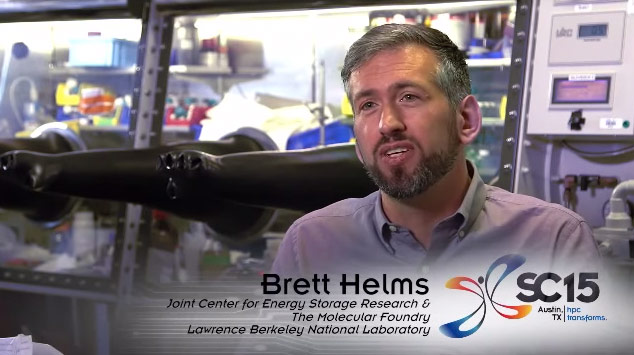
A new breakthrough battery—one that has significantly higher energy, lasts longer, and is cheaper and safer—will likely be impossible without a new material discovery. And a new material discovery could take years, if not decades, since trial and error has been the best available approach. But a new effort at Berkeley Lab that includes the Molecular Foundry’s Brett Helms may take some of the guesswork out of the discovery process.
The Electrolyte Genome. Think of it as a Google-like database of molecules. A battery scientist looking for a new electrolyte would specify the desired parameters and properties, and the Electrolyte Genome would return a short list of promising candidate molecules, dramatically speeding up the discovery timeline.
“This is just one of several compelling videos that SC15 will be releasing over the coming weeks to help describe how high performance computing is helping to transform society and have a tremendous positive impact on everyday life,” said Jackie Kern, SC15 Conference Chair from University of Illinois at Urbana Champaign.
According to Kern, It is also part of a three-year “HPC Matters” campaign that will be a big focus at the SC15 conference in Austin this November. This includes a free plenary session led by Diane Bryant – one of Intel’s top executives and recently named to Fortune’s list of the 51 most powerful women.

